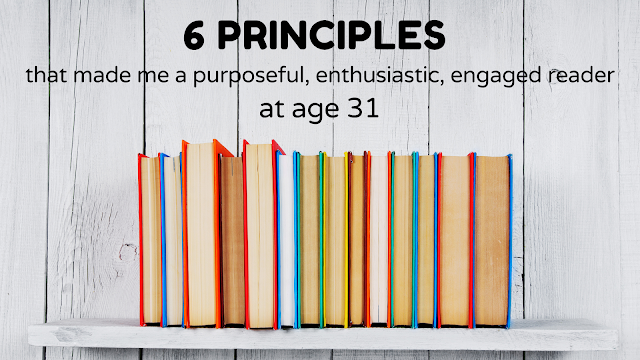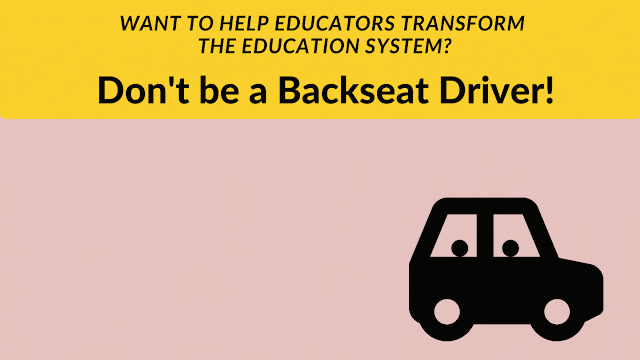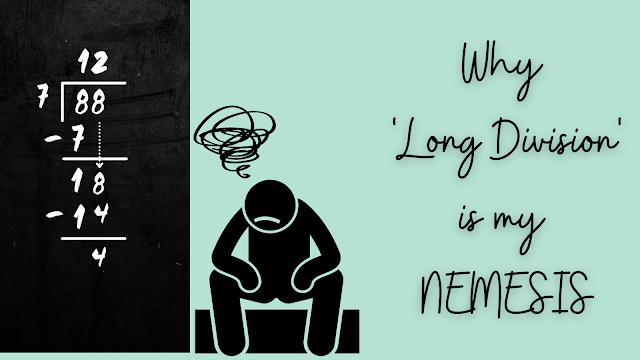6 principles that made me a purposeful, enthusiastic, engaged reader at age 31
The idea: Explore to discover the right content (what you want to read), purpose (why you want to read) and mode (how you want to read). Find a combination that is works for you. This can lead to sustained, enjoyable and impactful reading habits.
I became a reader around age 31. This blog is for all the wannabe readers out there. Most of my 'avid reader friends' cannot relate to my experiences or learning because they have already found conventional ways to be very effective for them (much like my own positive experiences with math within our very traditional system). When it came to reading, I wasn't as fortunate when I was younger.
Here are 5 principles that helped me become a purposeful, enthusiastic, consistent, engaged (but still slow to moderate) reader:
Content: What do you want to read?
1. Find what you love to read. Everyone doesn’t enjoy the same content.
My go to genre is non-fiction that builds personally and professionally. I also love a good autobiography - so inspiring. Many of my reader friends are appalled by this because it doesn’t sound leisurely enough and feel like I am missing out on the wonderful world of fiction. Not for me right now, I cannot prioritize this.
I have also just begun exploring the wonderful world of podcasts (I think I binge listened to The Tim Ferriss Show this year lol) and some great blog subscriptions that I discovered on twitter.
2. You don’t have to love every book you pick up.
I don’t love about 1 in 7 books that I choose. If I don’t love it when I am 15% in, I don’t finish it. And that’s okay. I did not know this when I was younger. I forced myself to get through books and it was exhausting.
Purpose: Why do you want to read?
3. Find an authentic reason to read. There are many purposes for reading. Do it when you find a reason that is meaningful to you.
I now read with a clear purpose - to help me improve personally and professionally. When I was young, my only purpose for reading was ‘leisure’. It didn’t work for me because I always preferred social activities, playing outdoors or other forms of media. Then I started reading at around 30 when I needed advice on how to be a school leader without mentors or a leadership degree to guide me. With this, for the first time ever, I found an authentic and meaningful purpose for reading.
These books help me become a better leader and support my team. I am constantly making notes on powerful mental models. I also take note of interesting research studies and fun anecdotes/ facts that make for rich workshop material. I am so engaged while I read now and it has become both a priority and a practice I thoroughly enjoy.
4. Find authentic reasons to share what you are reading.
With purposeful reading I also found authentic ways to share and discuss what I was reading. In my first few years a peer of mine was instrumental in building my passion for reading, because she patiently engaged in discussions with me. I loved sharing what I learned in our school staff room and it helped me process everything better in my early days. Her recommendations led me to some of my most engaging books.
Eventually, I found many different ways to process and share what I was reading - by incorporating them into teacher or leadership training workshops, coaching and now blog and social media posts. Of course you will realize eventually that the main beneficiary of this 'sharing' is you.
Purposeful reading is arguably the most important criteria for sustained, personally meaningful reading.
Mode: How do you want to read?
5. Find the mode that works best for you. There are so many options today that go beyond physical books!
Almost a decade after becoming a real “reader”, most of my “reading” happens on audible audiobooks. Second in line is Kindle and a far far third is physical books (my avid reader friends can’t handle this either, lol).
Audiobooks were a game changer for me. At first it was so hard to process anything. But over time it gave me the huge advantage of being able to “read '' while I wash dishes, walk or take my kids to their after school classes. This just trumped everything because it allowed me to read consistently. Side note, audiobooks don’t work for me when the intensity of my task increases. For example I can’t do an audiobook while jogging, I just can not focus enough. So just music while I run.
I also want to quickly come back here to my point about making notes while I read. Since I read on the go, I usually need to make notes on the go. Which is why my notes app on my phone works best for me. I have hundreds of notes on my phone that have served me so well when I need to go back to important content. A notepad and pen - just like carrying around a physical book - doesn't work for me.
6. Set yourself up with habits for success.
I failed to discover the power of books for 30 years because I didn’t find the right content, meaningful purpose or the right mode. The mode of my successful reader friends - reading a book at night or on the weekend, just didn’t work for me. I passed out 10 mins into reading at night. After becoming a parent this got even worse because of the long list of parenting responsibilities that eliminated any time to just ‘be’. So for me, reading on the go and in between stuff, works. Explore and find out what works for you.
When my wannabe-reader colleagues ask how they might start - I say pick something easy - like a blog that is interesting/ connected to your work/ hobby and read for 15 mins every day no matter what. Do this for a few weeks. There is an element of building stamina too, but at the same time it is not a chore. Find the frequency and mode that helps you ‘cruise’.15 years ago I would never have predicted that reading would be one of my top picks while prioritizing my time. If you are looking to build this habit, I hope you find some of these tips helpful too!







Comments
Post a Comment